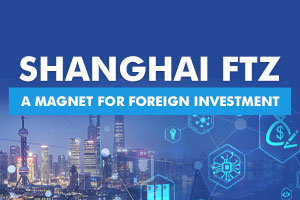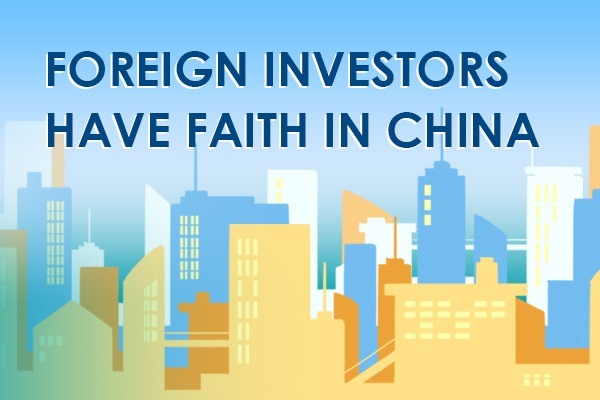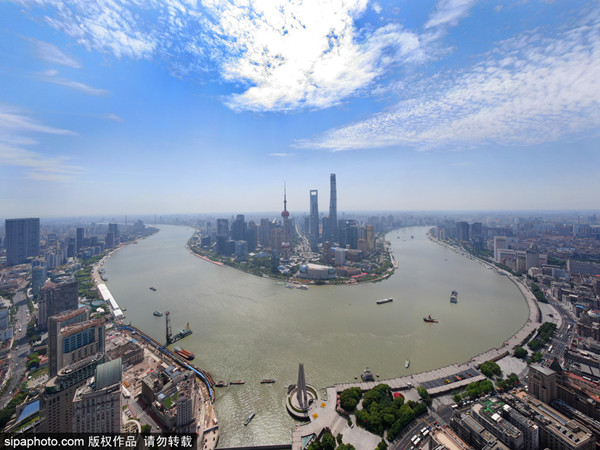Shanghai ramps up role as consumption hub
City continues to develop international appeal past recent pandemic setbacks
Shanghai, with all aspects of life gradually recovering after a COVID lockdown, will take measures to create more business opportunities for global consumption enterprises and step up efforts to be "an international consumption center city", or an international hub of consumption, in the 14th Five-Year Plan (2021-25) to sustain its long-term development.
According to Gu Jun, director of the Shanghai Commission of Commerce, despite being affected by the pandemic in the first half of 2022, Shanghai maintained the leading position in the Chinese mainland in developing the debut economy, which includes attracting global brands to launch new products or open stores in the city. A total of 366 stores made their debut in Shanghai and more than 3,000 brands from home and abroad hosted new product releases and shows in the first six months of this year.
Starting from June, signs of recovery in the consumption industry are being witnessed in the city. Luxury brands such as Tiffany and Loewe under LVMH, Cartier under Richemont and Gucci under Kering have hosted global new product debuts in Shanghai. L'Oreal organized the first metaverse show for more than 100 new cosmetics products under 31 brands in the city.
A jewelry art exhibition titled Van Cleef & Arpels: Time, Nature, Love also kicked off at the Power Station of Art in Shanghai on July 1. The ongoing showcase, which runs to Oct 7, features more than 300 jewelry items, watches and other objects.
Gu revealed that there will be more product releases and store debuts in the second half of 2022.Low-carbon growth, high technology and internationalization will be emphasized.
"Shanghai will continue to develop the debut economy by accelerating the gathering of domestic and international fashion brands, fostering talent and professional organizations and setting more supportive policies," said Gu. "We will strive to attract more global brands to release new products, establish their first stores and then build headquarters to speed up the development for Shanghai to be an international consumption hub."
Encouraged by preferential government policies and signs of fast recovery, consumption companies in Shanghai are optimistic about their development and are keen to carry out new investment projects in the city.
"Porsche China's sales have gradually improved since the end of the Shanghai lockdown. Despite a turbulent first half of the year, the delivery situation is back on track with a double-digit increase in June compared with last year, with the Panamera even achieving a 25 percent year-on-year increase in the first six months," said Michael Kirsch, president and CEO of Porsche China. "We remain optimistic about our own performance and that of the whole luxury car market in the second half of the year."
According to Kirsch, Shanghai boasts a strong automobile development foundation and is an ideal investment destination for global automotive developers.
"Since the beginning of the 14th Five-Year Plan (2021-25), Shanghai has issued a number of supporting policies around the promotion of new energy vehicles and smart vehicles covering areas such as product diversity, convenience of use and operation of smart vehicles and intelligent charging infrastructure construction, achieving fruitful results," said Kirsch. "There is no doubt that Shanghai has become a well-deserved capital of new energy vehicles and smart vehicles in China and will continue to lead the country."
Porsche will continue to develop its supply base in China, especially in Shanghai, with the aim of bringing in more innovation and working closely together with its partners, according to Kirsch.
The automaker will also further strengthen research and development capacities in Shanghai. The construction of an R&D facility in the city is ongoing.
"The R&D satellite location in China is aiming to improve and optimize local R&D capabilities, as well as advise and integrate technologies from the Chinese market with Porsche's global innovation strategy," said Kirsch.
Kirsch said the first batch of German R&D personnel arrived in the city earlier this year. To date, five more German colleagues have joined Shanghai team and have taken up their roles. In addition, closer cooperation with local partners, such as Porsche Engineering and Porsche Digital China, is gradually being carried out.
New Zealand dairy producer Fonterra, who has its Chinese headquarters in Shanghai, has given a thumbs-up to Shanghai's policies, including 50 measures released in late May.
"We are very supportive of the incentive measures taken by the Shanghai government, which we feel not only offer financial support to many small and medium-sized enterprises but more importantly, play a vital role in inspiring market confidence after the economy slowed down for several months due to COVID-19 pandemic," said Teh-han Chow, CEO of Fonterra Greater China.
Chow said that despite the fact Shanghai is facing many challenges following several months of lockdown, Fonterra is still very confident about the future of the city.
"Numbers from the statistics bureau of Shanghai released on July 18 showed that all the key indexes in terms of the industrial field, consumption and service sectors are bouncing back and have shown year-on-year growth in June. This shows the strong resilience the country's financial hub has, which is the key factor for our confidence in Shanghai in particular," Chow said. "In all, the environment is very good for companies to do business in China, especially in Shanghai. It is the rule of law, clear policies and procedures, and even the government's work to streamline processes that help to make things go more smoothly."
Fonterra plans to upgrade its application center in Shanghai in the second half of the year so it can better serve its customers in the eastern part of China.
The fifth China International Import Expo will be held in Shanghai on Nov 5-10 at the National Exhibition and Convention Center (Shanghai). Fonterra said it will continue to participate and debut new products.
"This is the fifth time in a row we've signed up for the CIIE. We have eight products lined up to present at the CIIE this year, including high protein grass-fed ultra-high temperature milk, salted butter and a new cream cheese product," Chow said. "We are currently under events planning together with our customers and partners across our business chains. We are confident that the upcoming CIIE will be another milestone in our business development in China."
Fashion brand Victoria's Secret, which opened its first store in Shanghai in 2015 and then built its first flagship store in China on bustling Huaihai Road of Shanghai in 2017, said it will take Shanghai as the stronghold to support its expansion in China in coming years.
"We are confident that Shanghai will again show its vitality with the support of all kinds of policies. We will expand our product portfolio and develop new business projects to support the development of Shanghai," said Carrie Zhang, vice-president of marketing and merchandising at Victoria's Secret.
Victoria's Secret formed a joint venture with Regina Miracle International in January to operate all Victoria's Secret stores and related online business in China.
"The joint venture is key to strengthening our development in China," said Zhang. "We will use our highly complementary strengths to support each other and benefit more Chinese consumers with premium products and services."
Zhang revealed that the brand, with the entire Chinese team based in Shanghai, will collaborate with other brands in China to introduce more themed products as part of its localization strategy in coming years. It will also embrace digitalization to serve the varying demands of consumers in China.
Unlocking more potential
Aimed at unleashing the city's consumption potential and strengthening confidence of enterprises and consumers, the Ministry of Commerce and the Shanghai government kicked off the International Consumption Season 2022 and the third Shanghai Shopping Festival, also known as Double Five Shopping Festival, on Sunday.
The International Consumption Season 2022, which runs to October, will bolster consumption upgrades and economic development in China. All related activities will be held by the same organizers and with the same logos and titles, according to the event organizers.
The third Shanghai Shopping Festival, running from July to September, consists of an opening ceremony, an achievement announcing ceremony, 12 benchmark activities, a series of events organized by all 16 districts of Shanghai and different kinds of promotional activities.
The 12 benchmark activities will include: New Product Global Debut Season, Shanghai Green Consumption Season, Shanghai Automobiles Consumption Carnival, Shanghai Coffee Culture Week, Shanghai Imported Products Shopping Festival, Shanghai Night Economy and Shanghai Digital Life Festival.
The festival also includes an automotive vehicle consumption carnival to boost the city's car consumption.
Shanghai plans to distribute shopping coupons to encourage consumers to participate in the shopping carnivals.
Shanghai, one of five cities approved by the central government to build itself into an "international consumption center city", hosted the first International Consumption Center City Forum on Sunday. Chinese Commerce Minister Wang Wentao, Shanghai's Party secretary Li Qiang, industrial experts and business representatives were in attendance.
According to Wang, the construction of the "international consumption center city" is a key strategic decision of the central government. So far, all five cities-Shanghai, Beijing, Guangzhou, Tianjin and Chongqing-have set policies to support the plan. The Ministry of Commerce will work closely with the five cities to promote the concept of internationalization and support consumption recovery and upgrade to better serve people's desire for a better life.
Li said that Shanghai will continue to consolidate the development foundation of the consumption industry, expand offerings to consumers and improve business environment to make Shanghai a hub to connect China with the global fashion industry, and transform it into a capital of fashion creation supported by high technology and a highland of fashion consumption with strong influence across the world.
"Shanghai will strive to be the first to basically become an 'international consumption center city' in China," Li said.
Shanghai will also take advantage of the annual CIIE, and its spillover effect, to boost the debut economy and brand economy. These will help to attract more multinationals to set up regional headquarters and for domestic enterprises to establish global headquarters in Shanghai.


 Shanghai FTZ: A magnet for foreign investment
Shanghai FTZ: A magnet for foreign investment  Foreign investors have faith in China
Foreign investors have faith in China  The RCEP era begins
The RCEP era begins  play
play 